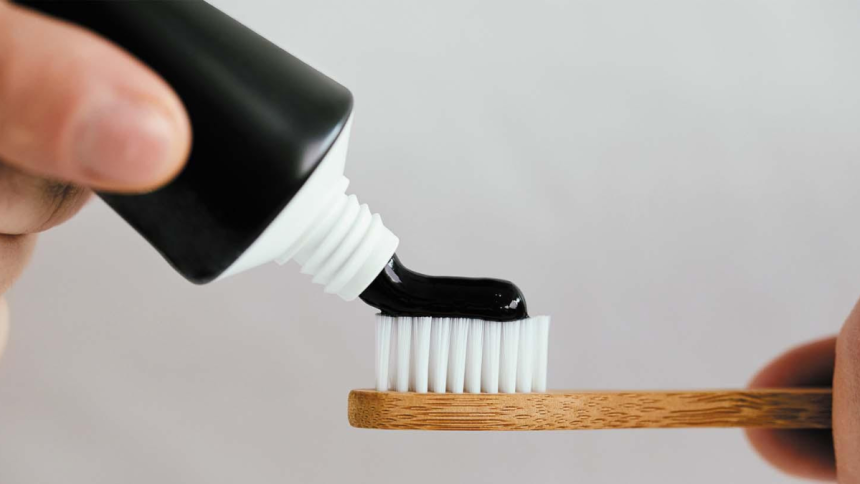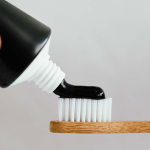Charcoal toothpaste has become a buzzworthy product in recent years, making its way into Instagram feeds, beauty blogs, and even your local supermarket. With promises of a whiter smile, detoxed mouth, and fresher breath, it’s no wonder so many people are curious to try it. But behind the dramatic black color and trendy packaging, one question still lingers: Is charcoal toothpaste actually safe for your teeth?
Let’s take a closer look at what’s in it, how it works, and what dental professionals are saying—so you can make a truly informed choice before adding it to your daily routine.
What Is Charcoal Toothpaste?
Charcoal toothpaste typically contains activated charcoal, a form of carbon that’s been processed to have tiny, porous particles. It’s long been used in medicine to absorb toxins in cases of poisoning or overdose. That same absorbent property is what supposedly makes it good for oral health—by binding to plaque, surface stains, and bacteria.
Many charcoal toothpastes on the market claim to naturally whiten teeth, freshen breath, and eliminate toxins—often without the use of harsh chemicals or artificial ingredients. On the surface, that sounds great, right? But as with many trends, there’s more beneath the surface.
The Appeal: A Natural Way to Whiten?
One of the biggest reasons people reach for charcoal toothpaste is to whiten their teeth. Because it’s mildly abrasive, charcoal can scrub away some surface stains caused by things like coffee, tea, or red wine. So yes—it may help brighten your smile slightly in the short term.
But it’s important to remember that surface stains are only part of the picture. Deeper discoloration, like that caused by aging or medication, won’t be affected by charcoal toothpaste. And more importantly, aggressive abrasion—especially when done daily—can wear away enamel, the protective outer layer of your teeth.
What Dentists Are Saying
Dental professionals have weighed in with some important concerns. While the idea of “natural” oral care is appealing, not all-natural products are automatically good for your teeth.
According to Specialist Dental Group, “While charcoal toothpaste may seem like a convenient whitening solution, excessive use can do more harm than good if it leads to enamel erosion.” Enamel doesn’t regenerate, so once it’s gone, it’s gone for good.
Here are a few of the main dental concerns with charcoal toothpaste:
1. Abrasiveness
Most charcoal toothpastes don’t carry the American Dental Association (ADA) Seal of Acceptance, partly because their level of abrasiveness can vary widely. If it’s too harsh, it can damage enamel and even irritate the gums.
2. Lack of Fluoride
Many charcoal-based toothpastes are marketed as “natural” and therefore skip fluoride. While this might sound like a positive to some, fluoride is crucial for strengthening enamel and preventing cavities. Without it, you might be increasing your risk of tooth decay—especially if you’re using charcoal toothpaste exclusively.
3. Potential for Staining
Ironically, charcoal can actually leave black or gray residue in the tiny cracks and crevices of your teeth or dental restorations (like fillings or crowns). This can make your smile appear dull or patchy over time.
4. Unclear Long-Term Effects
There simply isn’t enough long-term research on the effects of using charcoal toothpaste regularly. Most of what we know is anecdotal or based on short-term studies. Until more evidence is available, many dentists advise caution.
So, Should You Use Charcoal Toothpaste?
The answer really depends on your dental goals, your current oral health, and how often you plan to use it.
- If you’re looking for occasional brightening, using charcoal toothpaste once or twice a week might help lift some surface stains—but you should pair it with a fluoride toothpaste to maintain enamel strength.
- If you have sensitive teeth, receding gums, or dental work, it’s probably best to skip charcoal toothpaste altogether.
- If you’re committed to whitening, consider speaking to a dental professional about safer, more effective options. In-office treatments or dentist-approved whitening products can give you better results with fewer risks.
A Smarter Approach to Oral Health
It’s easy to be drawn in by wellness trends, especially when they promise quick results. But when it comes to your teeth, slow and steady really does win the race. Brushing twice daily with a fluoride toothpaste, flossing, drinking water, limiting staining foods, and scheduling regular dental cleanings will do more for your smile in the long run than any miracle product.
If you’re still curious about charcoal toothpaste or wondering what kind of whitening solution is right for you, it’s always a good idea to check in with your dentist. At Specialist Dental Group, their experienced team can evaluate your individual needs and guide you toward products that are both safe and effective—so you don’t have to choose between natural and smart.
Final Thoughts
Charcoal toothpaste isn’t necessarily “bad,” but it’s not the miracle product it’s often made out to be either. Used occasionally and with the right precautions, it may give your smile a temporary boost. But for real, lasting oral health and whitening, traditional methods still hold strong.
In the end, a healthy smile isn’t just about what’s trendy—it’s about what works best for you.
Lynn Martelli is an editor at Readability. She received her MFA in Creative Writing from Antioch University and has worked as an editor for over 10 years. Lynn has edited a wide variety of books, including fiction, non-fiction, memoirs, and more. In her free time, Lynn enjoys reading, writing, and spending time with her family and friends.















